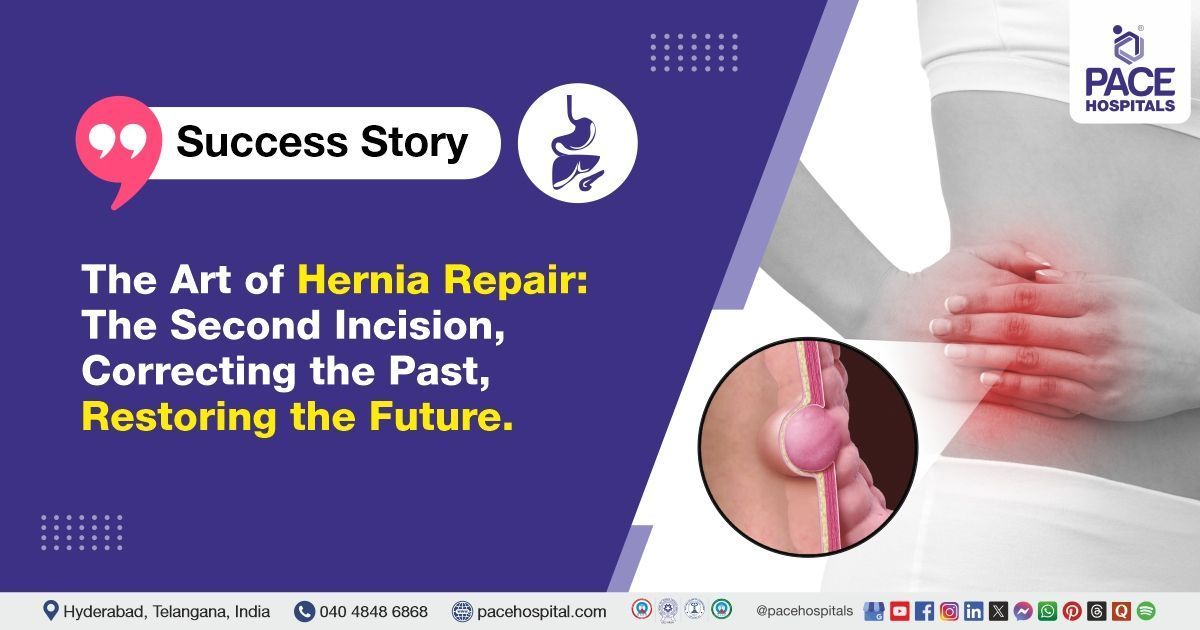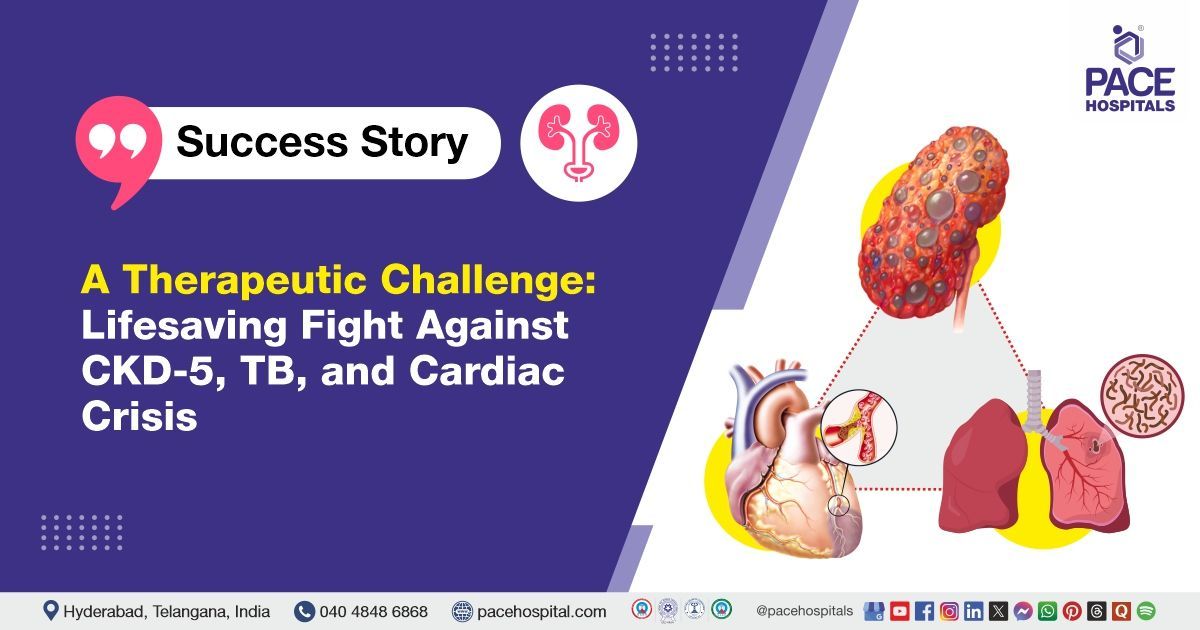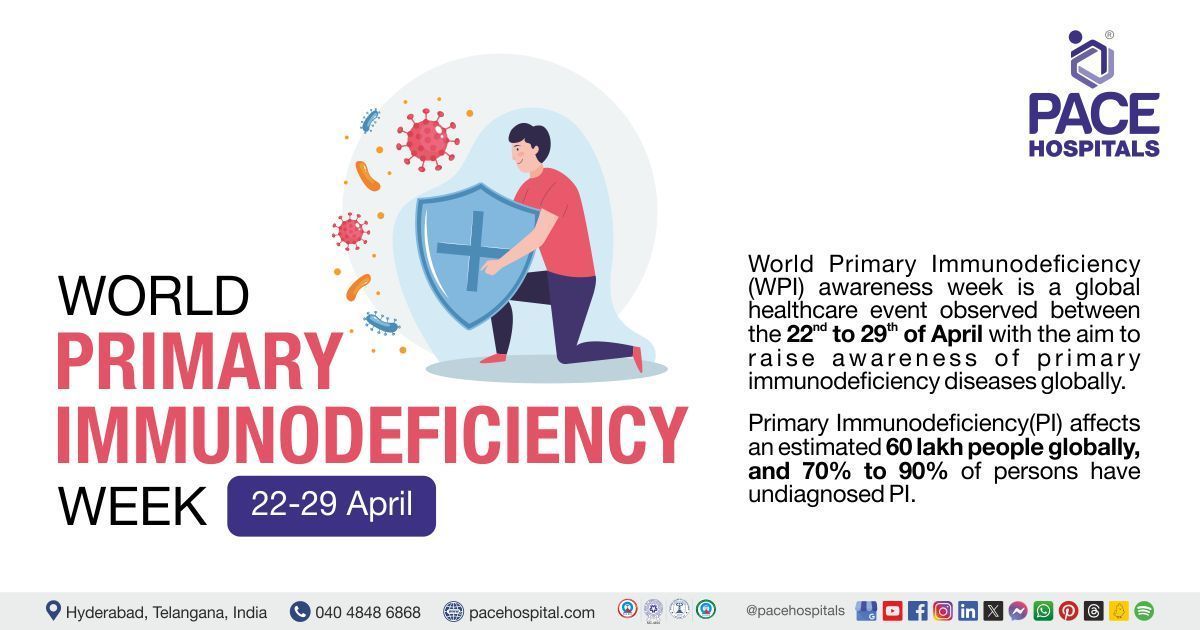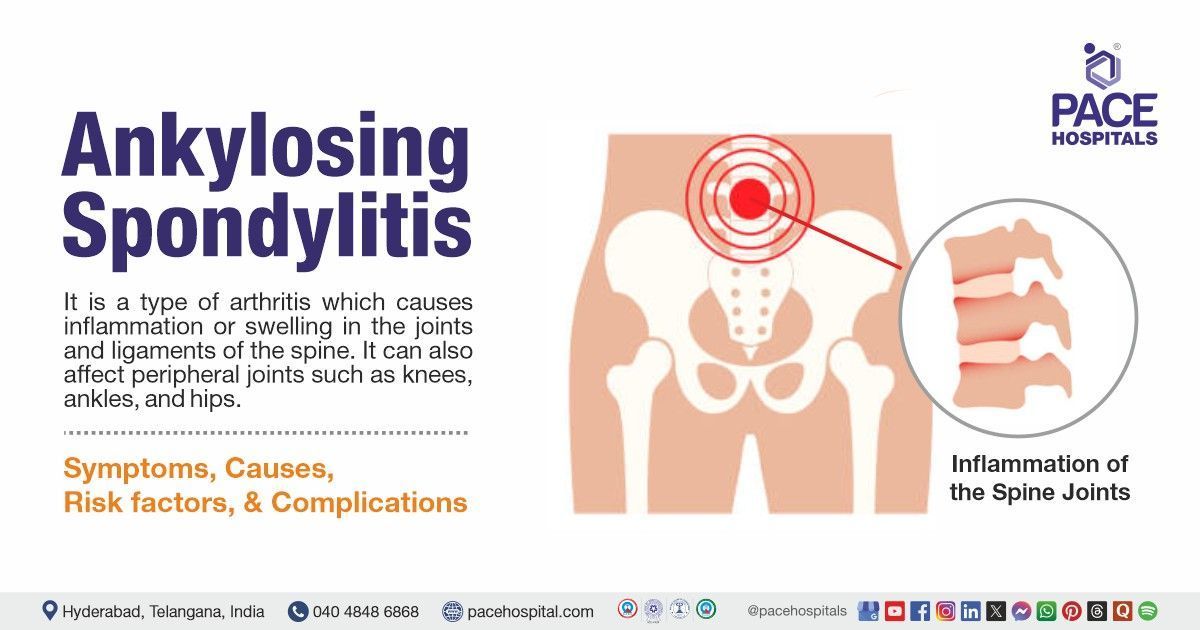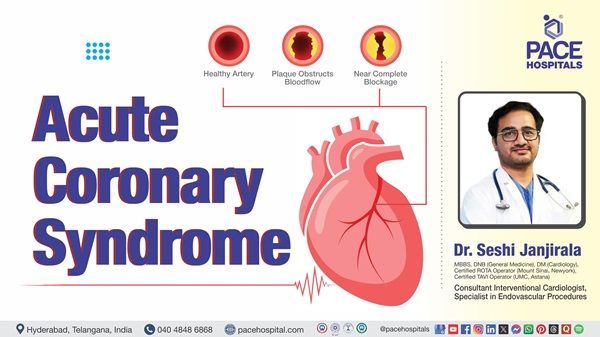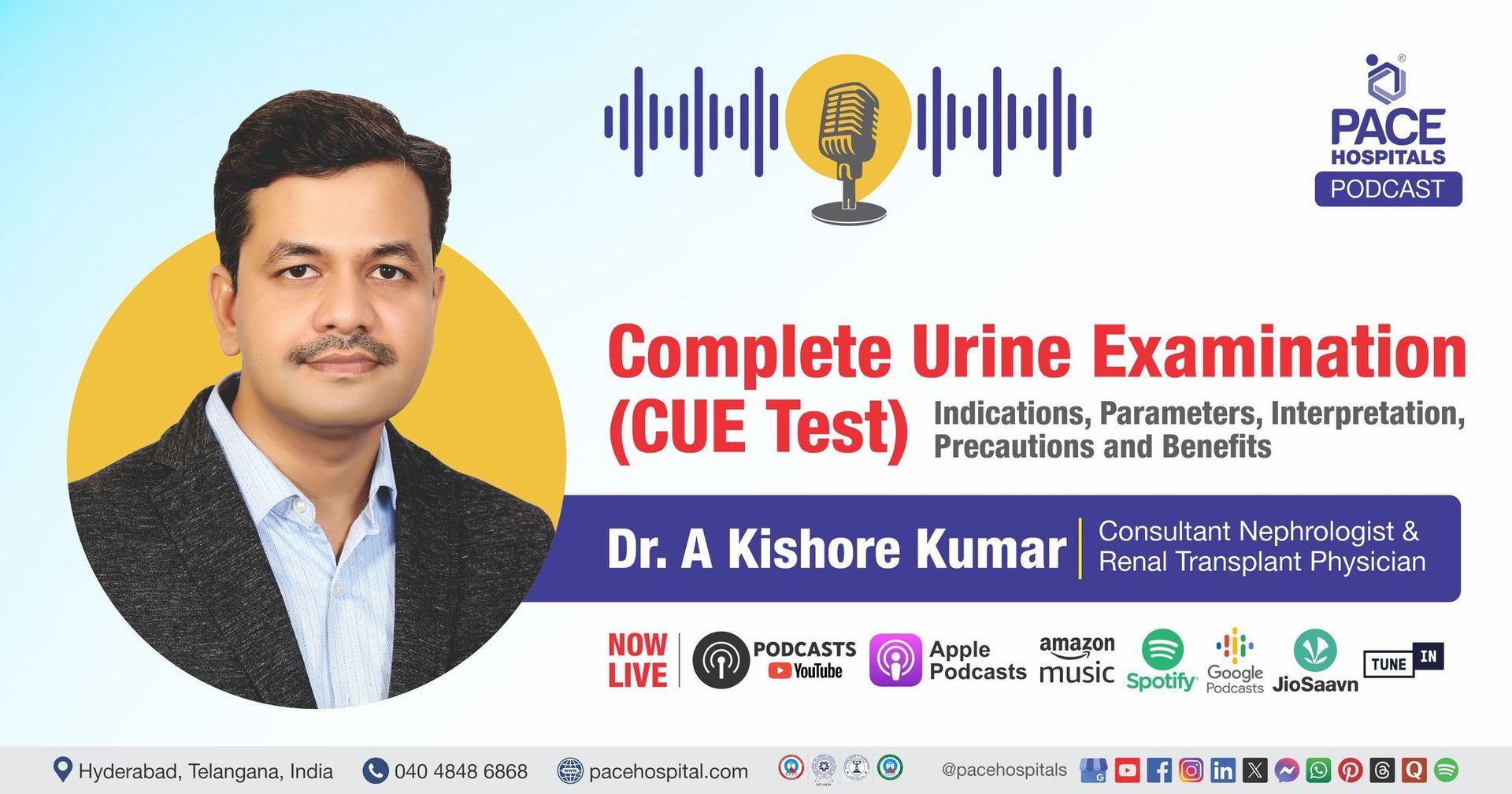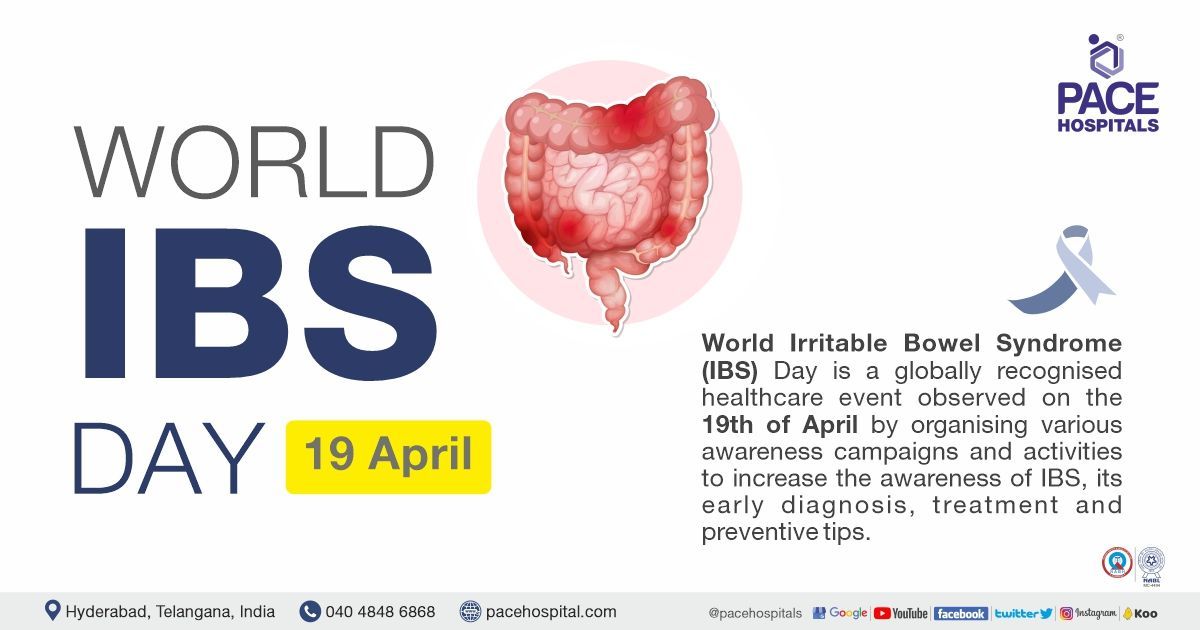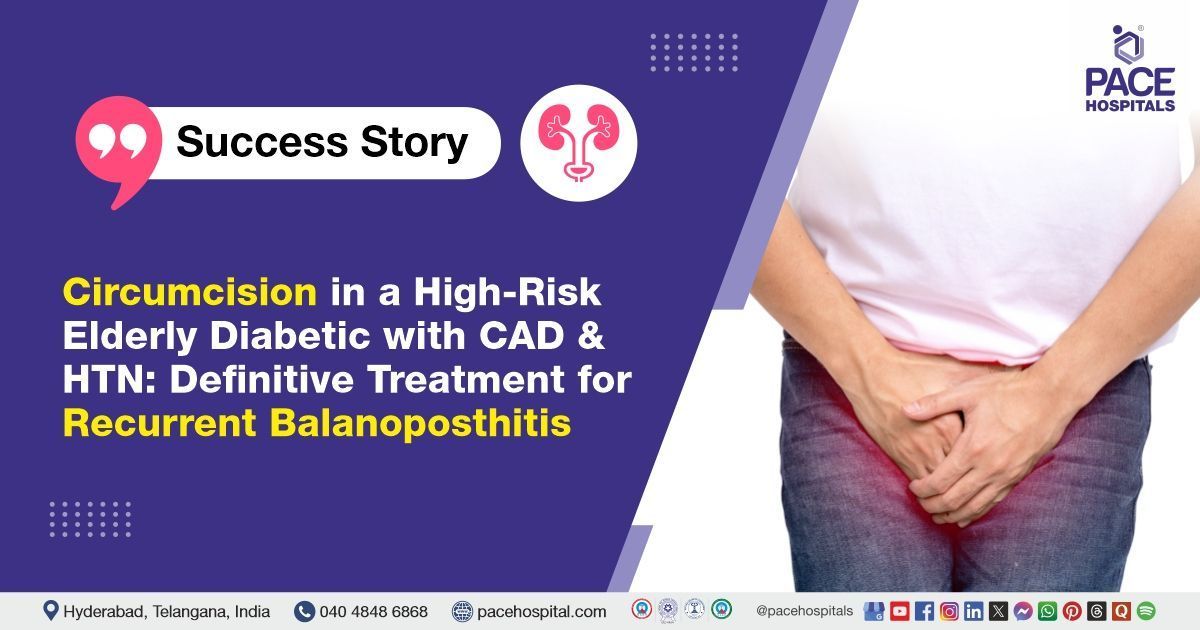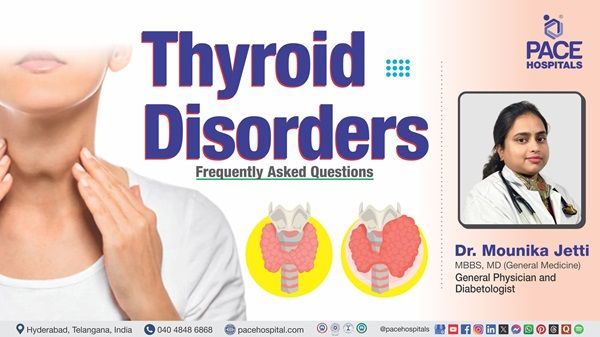The Art of Hernia Repair at PACE Hospitals: The Second Incision, Correcting the Past, Restoring the Future.
Team of surgical gastroenterologist in Hyderabad at PACE Hospitals successfully performed an open incisional hernioplasty on a patient with an incisional hernia. The procedure was performed under general anesthesia, effectively repaired a 4 cm defect, alleviated symptoms and prevented potential complications.
Chief Complaints
A 44-year-old female patient from Kandlakunta, Guntur, presented to the Surgical Gastroenterology Department at
PACE Hospitals, Hitech City, Hyderabad, with a progressively enlarging swelling in the right lumbar region. The swelling, associated with discomfort, prompted her to seek admission for further evaluation and management.
Medical History
A detailed review of the patient’s medical history revealed no significant comorbidities such as
diabetes mellitus,
hypertension, or
cardiovascular disease. The incisional hernia was noted to have developed at the site of a previous surgical incision, a common etiology for such
hernias, likely compounded by tissue weakening due to prior surgery.
On Examination
Physical examination confirmed a visible swelling in the right lumbar region, consistent with an incisional hernia. The hernia was reducible, with a palpable defect measuring approximately 4 cm in the lateral part of the previous incision. No signs of strangulation, obstruction, or systemic infection were observed, and the surrounding tissues appeared to be uncompromised.
Diagnosis
Upon arrival at PACE Hospitals, the patient's vital signs were within normal limits. Following a comprehensive clinical assessment and diagnostic tests, the patient was diagnosed with an incisional hernia, a type of ventral hernia that develops at the site of a previous surgical incision due to weakness in the fascial closure, typically presenting as a reducible swelling near the surgical scar. Based on the diagnosis, she was scheduled for Incisional Hernia treatment in Hyderabad at PACE Hospitals under the care of the Surgical Gastroenterology Department.
Medical Decision Making
Given the symptomatic and progressively enlarging nature of the hernia, Dr. CH Madhusudan, Senior Consultant Surgical Gastroenterologist and Liver Transplant Surgeon, in collaboration with Dr. Pradeep Kiran Panchadi, Consultant Pulmonologist, recommended an open incisional hernioplasty as the definitive treatment. Dr. Madhusudan led the surgical planning, assessing the hernia’s characteristics and the patient’s overall fitness for surgery. Dr. Panchadi contributed by evaluating the patient’s respiratory status, ensuring optimal pulmonary function to minimize perioperative risks, particularly because general anesthesia was to be used. This multidisciplinary approach involved thorough preoperative optimization, including risk stratification and clearance, to ensure a safe surgical outcome.
Surgical Procedure
The patient underwent an open incisional hernioplasty in Hyderabad at PACE Hospitals under general anesthesia. Intraoperative findings confirmed a 4 cm defect in the lateral part of the previous incision, containing omentum. The herniated contents were carefully reduced, and the defect was closed using Prolene No. 1 sutures. A 15 x 15 cm Prolene mesh was placed over the repaired defect and secured with Prolene 2.0 sutures to reinforce the abdominal wall. The procedure was completed without complications, with minimal blood loss, and the patient remained hemodynamically stable throughout the procedure.
Postoperative Care
Post-surgery, the patient was monitored in the surgical recovery unit, where she received intravenous antibiotics, proton pump inhibitors, and fluids to support recovery. Wound care was meticulously performed, and pain management was achieved with analgesics. The postoperative period was uneventful, with no signs of infection, hematoma, or other complications. The patient’s condition stabilized rapidly, allowing for early mobilization.
Discharge Medications
The patient was discharged with a tailored pharmaceutical regimen including oral antibiotics for infection prophylaxis, proton pump inhibitors for gastric protection, and a combination analgesic for postoperative pain management. Additional supportive medications included a laxative to prevent constipation, an antihistamine for allergic prophylaxis, and an antitussive syrup.
Dietary Advice
The patient was advised to follow a normal, balanced diet to support healing and maintain overall health. Emphasis was placed on adequate hydration and fiber intake to prevent constipation, which could strain the surgical site.
Advice on Discharge
Comprehensive discharge instructions were provided to ensure optimal recovery. The patient was advised to avoid strenuous activities, including heavy lifting, to prevent stress on the repaired abdominal wall. Strict wound care protocols were outlined, including keeping the surgical site clean and dry. The patient was instructed to monitor warning signs such as fever, abdominal pain, or vomiting, which would necessitate immediate review in the emergency department.
Follow-Up
A follow-up appointment was scheduled one-week post-discharge with Dr. CH Madhusudan in the Surgical Gastroenterology outpatient department to evaluate wound healing and assess for any delayed complications.
Therapeutic Role of Open Incisional Hernioplasty in Incisional Hernia Management
Open incisional hernioplasty is a well-established surgical intervention performed by a surgical gastroenterologist/surgical gastroenterology doctor for incisional hernias, particularly those arising from prior surgical incisions. The procedure addresses the underlying fascial defect by reducing herniated contents and reinforcing the abdominal wall with synthetic mesh, significantly reducing the risk of recurrence.
At PACE Hospitals, the approach adheres to rigorous surgical standards, incorporating precise tissue handling, aseptic techniques, and robust mesh fixation to ensure durable outcomes.
Special attention is given to preoperative optimization, intraoperative precision, and tailored postoperative care, particularly for patients with complex abdominal wall defects. The use of Prolene mesh enhances the mechanical strength of the repair, while comprehensive perioperative management minimizes complications such as infection or seroma formation. This systematic approach not only resolves the hernia but also restores functional integrity, making it a cornerstone of treatment for symptomatic incisional hernias.
Share on
Request an appointment
Fill in the appointment form or call us instantly to book a confirmed appointment with our super specialist at 04048486868

